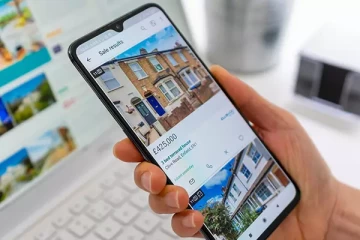Getting a UK mortgage as a returning British expat
This article identifies and explains what you can do as a returning expat to maximise your chances of getting a mortgage.
Written on 23 June 2022
As with any non-UK resident arranging a UK mortgage to buy a property can be a very difficult affair, especially as lenders are being more cautious as to who they lend to. If you’re returning to the UK after living abroad, there are options for you that will increase your chances of getting a UK mortgage.
This article identifies and explains what you can do as a returning expat to maximise your chances of getting a mortgage.
Who to approach for a UK mortgage
While some high street lenders may offer UK mortgages to non-residents, it’s not particularly common due to the increased checks that will need to be carried out due to the lack of a UK presence and recent credit record.
However, there are a number of specialist lenders who can provide mortgages for non-UK residents. While it can be difficult to find and approach them directly, the best way to begin the process is to speak to a mortgage broker who specialises in obtaining mortgages for non-residents, and they will help you find a lender suitable for your needs.
How to maximise your chances of getting a UK mortgage
Maintain a UK presence
For many expats this is either something that is already in place or not, but it is one of the main contributors for expats to successful obtain a mortgage. Whether this is maintaining a UK property or maintaining a correspondence address (such as a through a family member). This is more important if you have been outside of the UK for 3 or more years.
It is also incredibly useful to maintain a UK credit file, such as a UK credit card, mobile phone contract or bank account. This ensures that when a lender is looking into your background, they are able to check that you have a positive credit history. If a lender is unsure, this could be the information that leads to you getting accepted.
Save as large a deposit as possible, but minimum of 25%
While UK mortgage lenders can lend up to 95% of the value of a property, for non-UK residents this drops dramatically, and they will often not lend for more than 75% of the value of the property.
Therefore, it is important to save as large a deposit as possible.
Not only will this increase your chances of getting a mortgage in the first place, the larger the deposit you have the lower the interest rate will be. As the UK is currently experiencing regular rises in interest rates, this is potentially going to save you a lot of money in the longer term.
It’s also important that you are able to prove the source of the deposit for anti-money laundering purposes. This means that your deposit would need to be from your own savings or investments, the proceeds from the sale of or release of equity from another property, inheritance or a gift.
Employment and guaranteed income
The biggest influence on whether you will be able to borrow and, of course, how much you can borrow will be your current employment and income situation. If you can provide proof that you have between 3 and 6 months of income, you will more likely be accepted for a UK mortgage. It might be possible for some lenders to provide you with a mortgage with a proof that you have an accepted job offer for when you return to the UK, although it is not always guaranteed.
Self-employed expats
Unfortunately, even if you have been in self-employment for a number of years, you will still most likely need a trading history in the UK of at least 12 months to be considered for a mortgage.
Depending on your circumstances, a specialist mortgage broker may be able to source you a loan having fully evaluated your circumstances.
Request a free introduction to an independent mortgage advisor that will:
- Conduct a free introductory consultation to understand more about your situation and offer immediate guidance of your options
- Ask you to complete fact-find questionnaires to establish your best options and provide advice on how to proceed
- Provide access to mortgages in over 150 countries including UK, United States, Italy, Germany and Spain.
Request a free introduction to an independent mortgage advisor that will:
- Conduct a free introductory consultation to understand more about your situation and offer immediate guidance of your options
- Ask you to complete fact-find questionnaires to establish your best options and provide advice on how to proceed
- Provide access to mortgages in over 150 countries including UK, United States, Italy, Germany and Spain.


